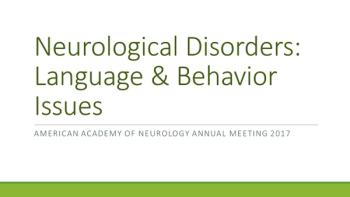
Studies discussed include neuropsychiatric symptoms leading to mild cognitive impairment and gesture comprehension and language in children with autism.

Studies discussed include neuropsychiatric symptoms leading to mild cognitive impairment and gesture comprehension and language in children with autism.
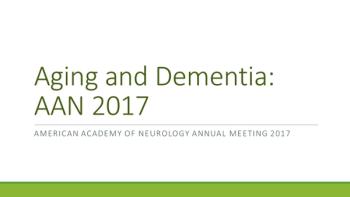
Studies examined the impact of blood pressure trajectories on dementia risk and explored the relationship between sleep apnea and Aβ accumulations.
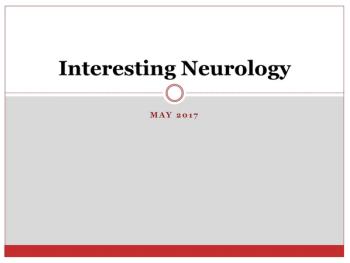
May news includes ground-breaking FDA approvals, predictions of Alzheimer disease, and a possible biomarker for mild traumatic brain injury.
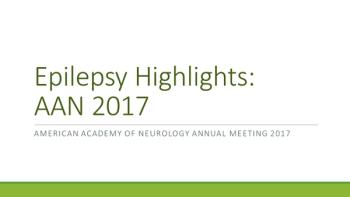
Highlights: imaging the temporal dynamics & cellular architecture of seizures in Dravet syndrome, & reducing risk of spontaneous fetal loss.

Blood protein analysis of plasma total tau has diagnostic use in Alzheimer disease. Could the same hold true for CTE?
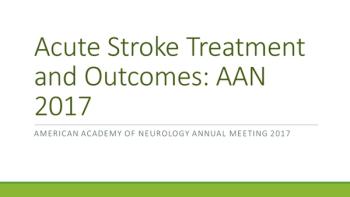
The effect of blood pressure on IAT safety and benefit and pediatric stroke outcomes based on treatment were some of the studies presented at AAN.

Peter Goadsby, MD discusses the efficacy, safety, & tolerability of the CGRP inhibitor erenumab in a phase III trial of participants with episodic migraine.

The new SUDEP guidelines, co-developed by the AAN & AES and presented this week at the AAN Annual Meeting, provide clarity to health professionals.
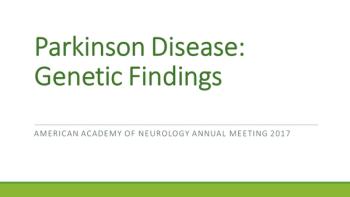
Research at AAN 2017 highlights research of genes that may help predict the likelihood of developing Parkinson disease and progression of the disease.

What was the impact of add-on cannabidiol treatment in patients aged 2-55 years experiencing drop seizures?

You won’t want to miss these new features and sessions at this year’s American Academy of Neurology Annual Meeting, April 22-28, in Boston, MA.
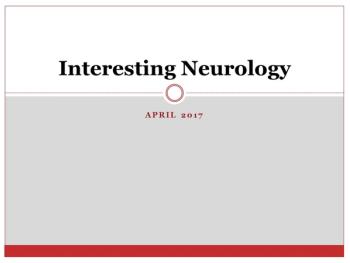
April news includes tools to manage brain injury and predict recovery, new drug hits and misses, and an updated epilepsy classification system.
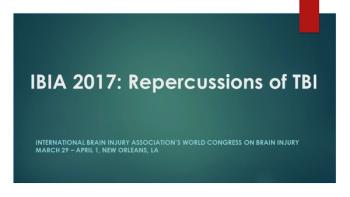
Research presented at IBIA 2017 looked at risk behavior in adolescents, return to work, and maladaptive emotion regulation following TBI.
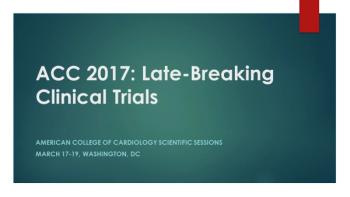
Research includes safety of digoxin with atrial fibrillation, comparison of cerebral embolic protection devices, and cerebral microbleed triggers.
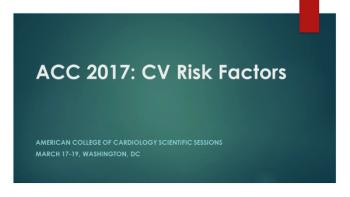
Research includes a possible link between Zika & CV issues, CV effects of cannabis use, and neurocognitive impairment with PCSK9 variants.
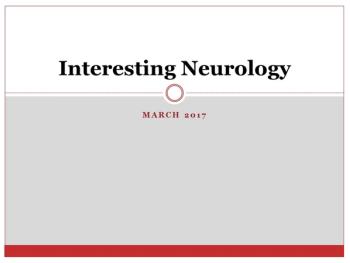
March news includes possible brain tumor therapies, a study exploring mechanisms underlying demyelination-induced seizures, and VNS post stroke.
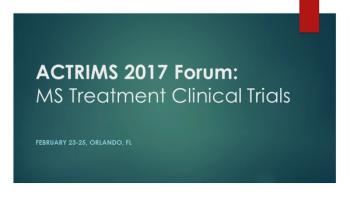
Research examined no evidence of disease activity and no evidence of progression with ocrelizumab as well as long-term results with mitoxantrone.
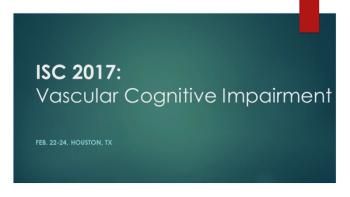
Research included the impact of diet on cognitive decline and the degree of a link between depression & dementia post intracerebral hemorrhage.
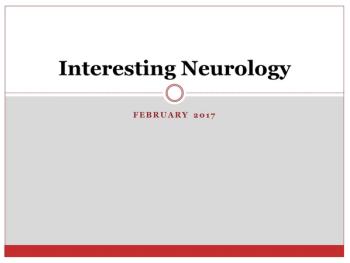
February news includes stroke risk with Alzheimer disease & migraine, neonatal hemorrhagic stroke, and head trauma in sports.
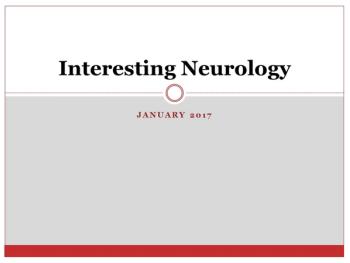
January news includes the first FDA-approved drug for spinal muscular atrophy, various epilepsy treatments & vitamin D’s impact on Alzheimer & headache.
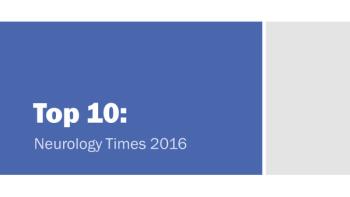
From Alzheimer disease to Zika virus, we’ve compiled a list of this year’s most popular articles on Neurology Times.
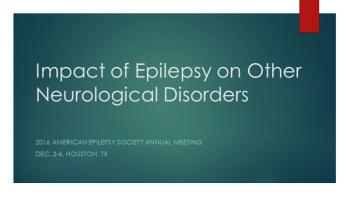
Research from AES 2016 explored relationships between epilepsy and other neurological disorders, including Alzheimer disease, MS, stroke, and autism.
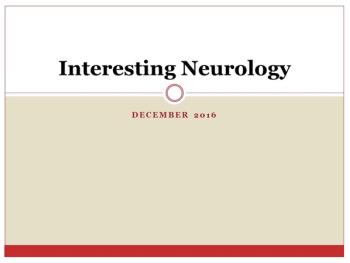
November news includes the first human clinical trial focusing on tau in Alzheimer disease and Zika-related microcephaly not presenting at birth.

Award-winning basic, translational, or clinical epilepsy research covered cannabidiol treatment, outcome predictions, imaging studies, and more.
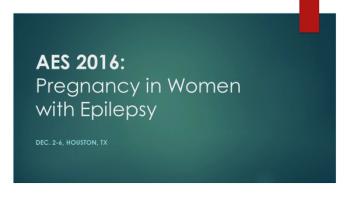
Careful planning and monitoring is important for women with epilepsy who become pregnant. Several studies from AES 2016 address pregnancy issues.

Up to 45% of stroke victims over the age of 60 will develop epilepsy. Researchers at AES 2016 presented risk factors of post-stroke epilepsy.
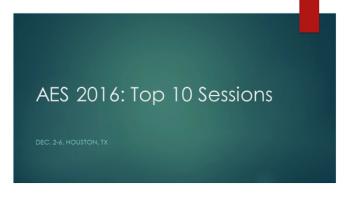
From surgical procedure selection to multiscale imaging to use of the latest drugs, we present a list of 10 not-to-be-missed sessions at AES 2016.
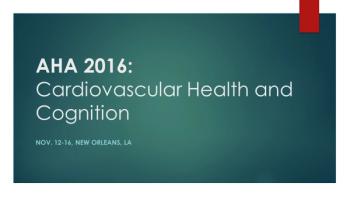
Do lipid-lowering medications or low vitamin D levels in mid-life cause neurocognitive deficits? What effect does hypotension have on TBI outcomes?
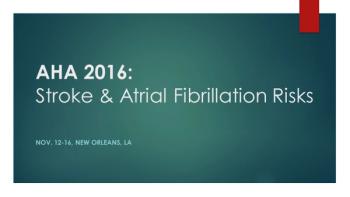
Psychological stressors, air pollution, and cardiorespiratory fitness were some of the stroke and AF risk factors researchers investigated.

The HOPE-3 study examined the effects of blood pressure- and lipid-lowering medications to prevent CV outcomes. How was cognitive function affected?

Published: June 25th 2015 | Updated:

Published: June 2nd 2015 | Updated:
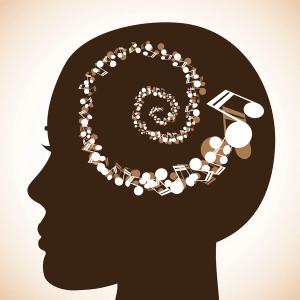
Published: October 5th 2015 | Updated:

Published: October 16th 2015 | Updated:

Published: November 11th 2015 | Updated:

Published: March 14th 2016 | Updated: